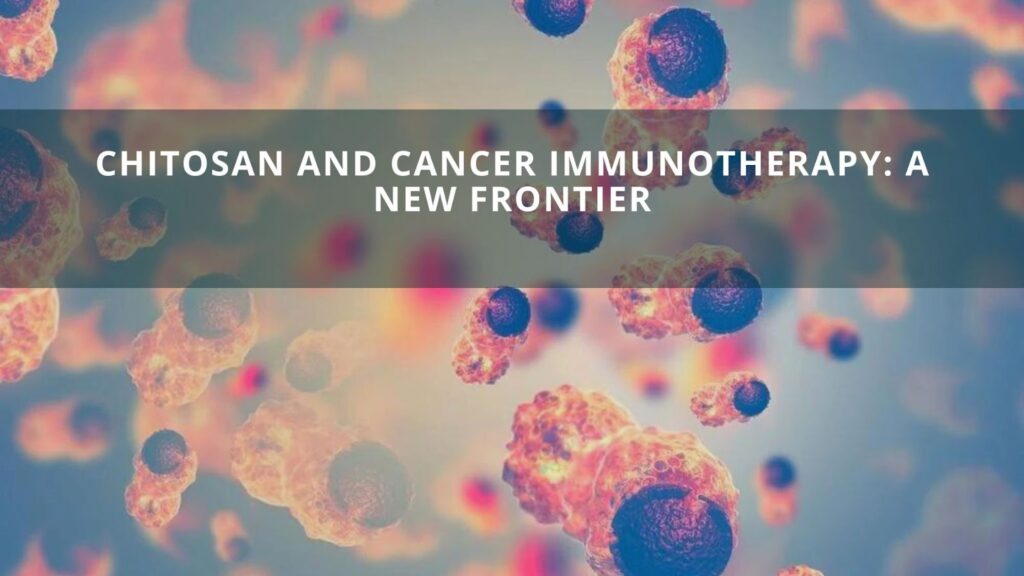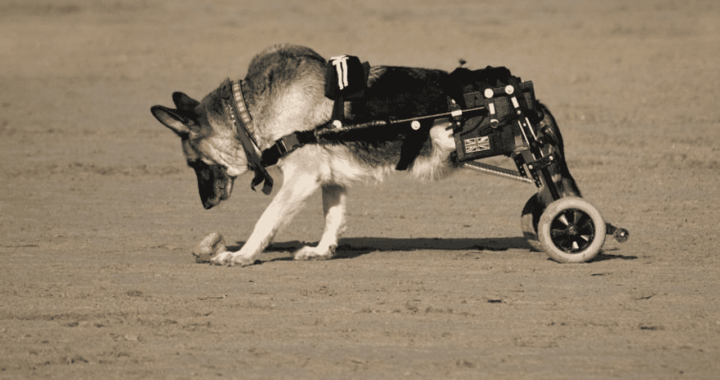Chitosan and Cancer Immunotherapy: A New Frontier

Chitosan is a biopolymer derived from chitin, a natural polymer found in the exoskeletons of crustaceans such as shrimp, crab, and lobster. Chitosan suppliers produce it by deacetylating chitin. It has attracted much attention in biomedicine due to its unique properties, including biocompatibility, biodegradability, and immunomodulatory effects.
The Promise of Immunotherapy and the Need for New Approaches
Immunotherapy has emerged as a promising cancer treatment, but not all patients respond to it, and many cancers are resistant to it. Therefore, there is a need for new approaches to improve the efficacy of immunotherapy.
Medical Chitosan has attracted attention in biomedicine due to its unique properties, including biocompatibility, biodegradability, and immunomodulatory effects.
The Immunomodulatory Effects of Chitosan: How it Activates and Suppresses Immune Responses
Chitosan has been shown to have immunomodulatory effects that can enhance the immune system’s response to cancer. It can activate immune cells such as macrophages and dendritic cells, leading to the production of cytokines and chemokines that can attract and activate T cells.
Also, it can increase the expression of co-stimulatory molecules on the surface of dendritic cells, which can further enhance T cell activation and proliferation.
Additionally, chitosan has been shown to inhibit the production of cytokines such as interferon-gamma (IFN-γ) and interleukin-17 (IL-17), which are involved in autoimmune diseases such as rheumatoid arthritis and multiple sclerosis.
Biomedical Chitosan as a Carrier for Immunotherapeutic Agents: How it Improves Delivery and Efficacy
Chitosan is a promising carrier for immunotherapeutic agents due to its unique properties. Chitosan nanoparticles can be loaded with a variety of agents, including antigens, antibodies, and small molecules. The nanoparticles protect the agents from degradation and improve their delivery to the target site. Chitosan nanoparticles have several advantages over other delivery systems.
First, chitosan is biocompatible and biodegradable, which reduces the risk of toxicity and allows for safe degradation and elimination of the carrier.
Second, chitosan can be easily modified to improve its properties, such as by altering the degree of deacetylation or by adding targeting ligands to enhance the specificity and selectivity of the carrier.
Third, chitosan nanoparticles can be formulated into different sizes and shapes, which can be optimized for specific applications.
Chitosan nanoparticles can also enhance the efficacy of immunotherapeutic agents. For example, chitosan nanoparticles loaded with interleukin-2 (IL-2) have been shown to increase the production of interferon-gamma (IFN-γ), a cytokine that activates immune cells such as T cells and natural killer (NK) cells. Chitosan nanoparticles can also enhance the delivery of anti-CTLA-4 antibodies, which are used to block inhibitory signals that suppress T cell activation.
Furthermore, chitosan nanoparticles can be designed to target specific cells or tissues, allowing for targeted delivery of immunotherapeutic agents to the tumor site or immune cells, which can enhance the therapeutic effect and reduce the risk of off-target effects..
Chitosan’s Anti-Tumor Effects: How it Induces Apoptosis and Inhibits Proliferation
Chitosan can induce apoptosis, or programmed cell death, in tumor cells by activating caspases, which are enzymes involved in apoptosis, and can also inhibit the growth and proliferation of tumor cells by blocking the cell cycle and inducing cell senescence, which is a state of permanent growth arrest.
Induction of Apoptosis
Apoptosis is a programmed cell death process that is important in maintaining tissue homeostasis and preventing the development and progression of cancer. Chitosan has been shown to induce apoptosis in cancer cells through various mechanisms.
One mechanism is through the activation of caspases, a family of cysteine proteases that play a central role in the execution of apoptosis. Another mechanism is through the regulation of Bcl-2 family proteins, which play a critical role in the regulation of apoptosis.
Inhibition of Proliferation
Proliferation is the process by which cells divide and replicate, and is a hallmark of cancer. Chitosan has been shown to inhibit proliferation of cancer cells through various mechanisms.
One mechanism is through the induction of cell cycle arrest and the second mechanism is through the regulation of signaling pathways that are important in cell proliferation.
Chitosan and Cancer Immunotherapy: Preclinical and Clinical Evidence
Chitosan-based immunotherapies have shown promising results in preclinical studies, including improved antitumor efficacy and increased survival rates in animal models.
Clinical trials are ongoing to evaluate the safety and efficacy of chitosan-based immunotherapies in humans. One clinical trial is investigating the use of chitosan nanoparticles loaded with interferon-alpha for the treatment of melanoma.
Preclinical Evidence
Preclinical studies have demonstrated the potential of chitosan in stimulating the immune system and inducing an anti-tumor response. Chitosan can act as an adjuvant, enhancing the immune response to cancer antigens and increasing the efficacy of cancer vaccines. Additionally, chitosan nanoparticles have been shown to enhance the delivery and efficacy of immunotherapeutic agents, such as cytokines, checkpoint inhibitors, and T cell receptor agonists.
One study demonstrated that chitosan nanoparticles loaded with a tumor antigen induced a significant anti-tumor immune response and increased survival in a mouse model of melanoma. Another study showed that chitosan nanoparticles loaded with an anti-CTLA-4 antibody increased the efficacy of the antibody and induced a durable anti-tumor response in a mouse model of melanoma.
Clinical Evidence
Clinical studies have also shown promising results in the use of chitosan-based therapies for cancer treatment. A phase I clinical trial evaluated the safety and efficacy of a chitosan-based cancer vaccine in patients with advanced melanoma. The vaccine consisted of chitosan nanoparticles loaded with a melanoma antigen and a TLR7 agonist. The vaccine was well-tolerated and induced an antigen-specific immune response in the majority of patients.
Another phase I clinical trial evaluated the safety and efficacy of chitosan nanoparticles loaded with a siRNA targeting the M2 isoform of macrophage colony-stimulating factor (M-CSF) in patients with advanced solid tumors. M-CSF is involved in the recruitment and differentiation of tumor-associated macrophages, which can promote tumor growth and immune suppression. The chitosan nanoparticles were well-tolerated and demonstrated evidence of target engagement and immune modulation.
Challenges and Future Directions: Improving the Efficacy and Safety of Chitosan-Based Immunotherapies
There are several challenges to the development of chitosan-based immunotherapies, including choosing the right chitosan company and the need for an improved understanding of the mechanisms of chitosan’s immunomodulatory effects, and optimization of the delivery.
Optimization of Chitosan Properties
This includes optimizing the molecular weight, degree of deacetylation, and charge density of chitosan, as these properties can affect its interactions with immune cells and tissues.
Enhancement of Targeting and Delivery
Another challenge is to enhance the targeting and delivery of chitosan-based immunotherapies to the desired sites of action.
Improvement of Stability and Shelf Life
Chitosan-based immunotherapies can be prone to degradation and instability, which can reduce their efficacy and shelf life.
Evaluation of Safety
While chitosan is generally considered to be safe and biocompatible, there is still a need to evaluate its potential toxicity, particularly with repeated dosing or long-term exposure.
Combination with Other Therapies
Finally, there is a need to explore the potential of combining chitosan-based immunotherapies with other therapies, such as chemotherapy or radiotherapy, in order to enhance their efficacy and overcome the limitations.
Conclusion
Chitosan exhibits unique physicochemical and biological properties, such as biocompatibility, biodegradability, and the ability to enhance immune responses.
Chitosan can act as a carrier for immunotherapeutic agents, improving their delivery and efficacy. Additionally, chitosan has been shown to induce apoptosis and inhibit proliferation of cancer cells, making it a potential novel approach to cancer treatment.
However, several challenges remain in the development of chitosan-based immunotherapies. It is important to choose the right chitosan supplier for the right product with the best quality.
Despite these challenges, the potential benefits of chitosan-based immunotherapies are immense, and there is a growing interest in this field.
Future research should focus on addressing the remaining challenges and optimizing the use of chitosan as an immunomodulatory agent in cancer immunotherapy, with the ultimate goal of improving patient outcomes and quality of life.




